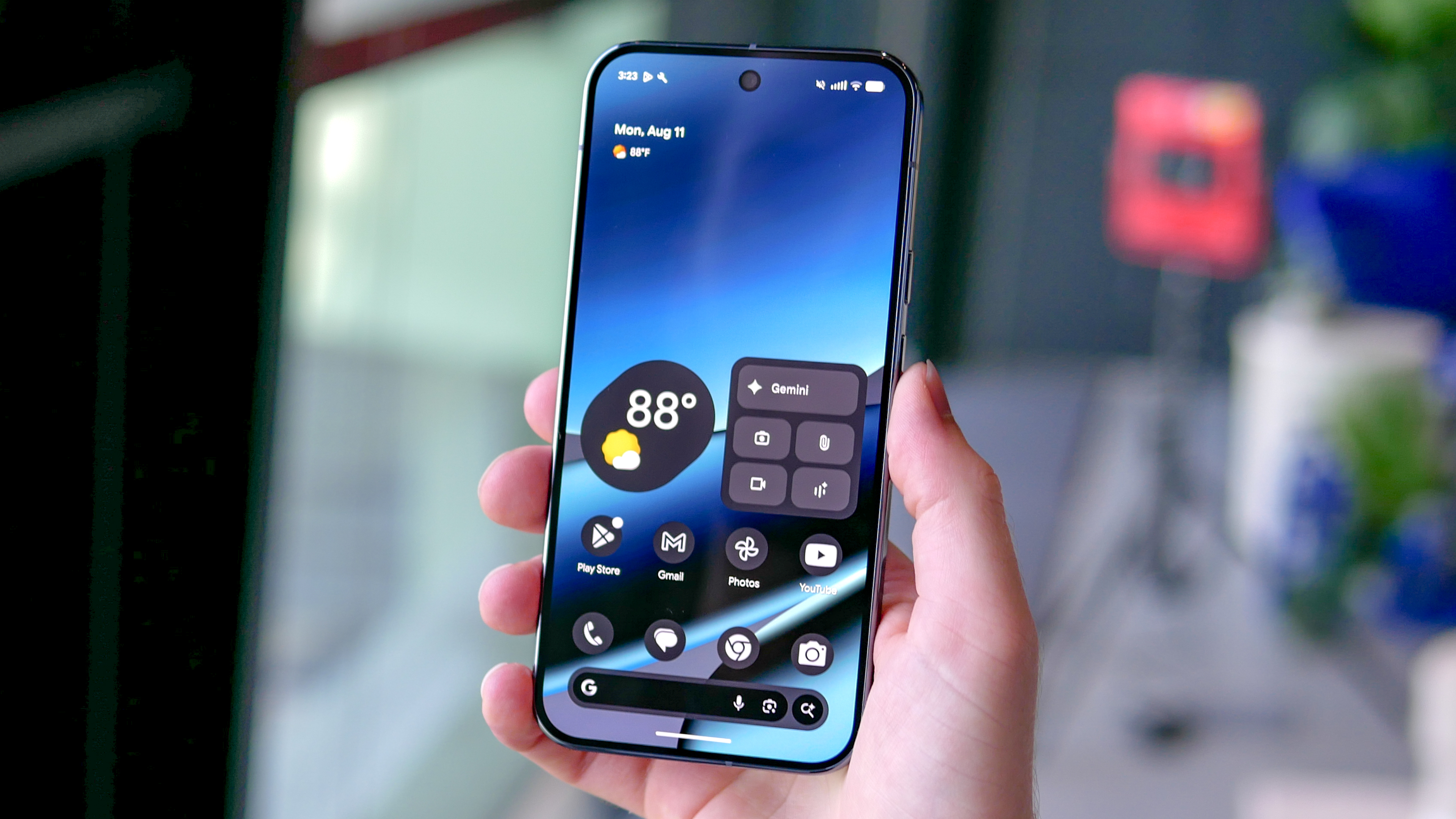Oculus Rift Inventor Predicts Virtual Reality's Future
Oculus co-founder Palmer Luckey weighs in on what's next for virtual reality, including touch control, changing the way we communicate and the convergence of AR and VR.
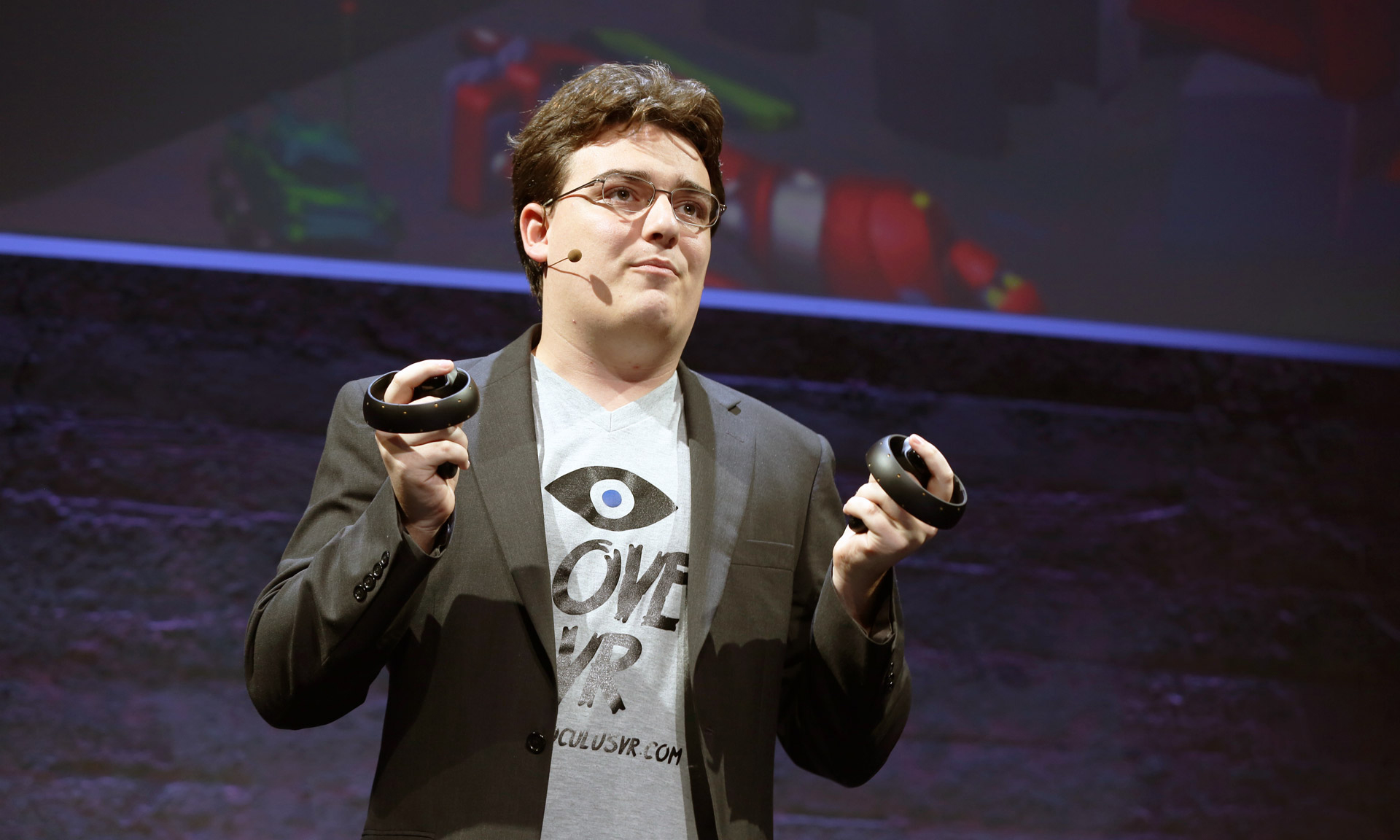
As the inventor of the Oculus Rift and the co-founder of Oculus VR, 23-year-old Palmer Luckey has a lot to be psyched about. His company's software powers Samsung's groundbreaking Gear VR, and the long-awaited consumer version of the Oculus Rift is set to hit the shelves in the first quarter of 2016, promising the most immersive virtual reality experience yet. Yet Luckey also sounded cautiously optimistic about 2016 in an interview with Tom's Guide, saying "it's not going to be the year that everyone gets interested in virtual reality."

We spoke with Oculus' wunderkind about both the near-term and long-term future of virtual reality, getting Luckey's thoughts on the key differences between mobile- and desktop-powered VR and the importance of the upcoming Oculus Touch controllers (which are now delayed until the second half of 2016). In addition, we discussed why Samsung made the best partner for the Gear VR and how virtual reality will actually make communication "more human." Luckey also predicts that VR and augmented reality will ultimately blend into one.
Q: Is 2016 a make-or-break year for VR?
A: It's the first year that a ton of content is going to be available. People have been making content for this not just for the last few months. There's a lot of stuff coming out next year that's been in development since late 2012, early 2013. Like Eve Valkyrie, which we're bundling with the Rift. That's a ton of years that's going into that that's finally coming out in 2016.
MORE: Oculus Rift Review: Worth the Hype
It's definitely going to be a pivotal year in terms of access to virtual reality. If you're interested in VR, it's going to be an awesome year. But it's not going to be the year that everyone gets interested in virtual reality, and I don't want people to get their hopes up too much on that.
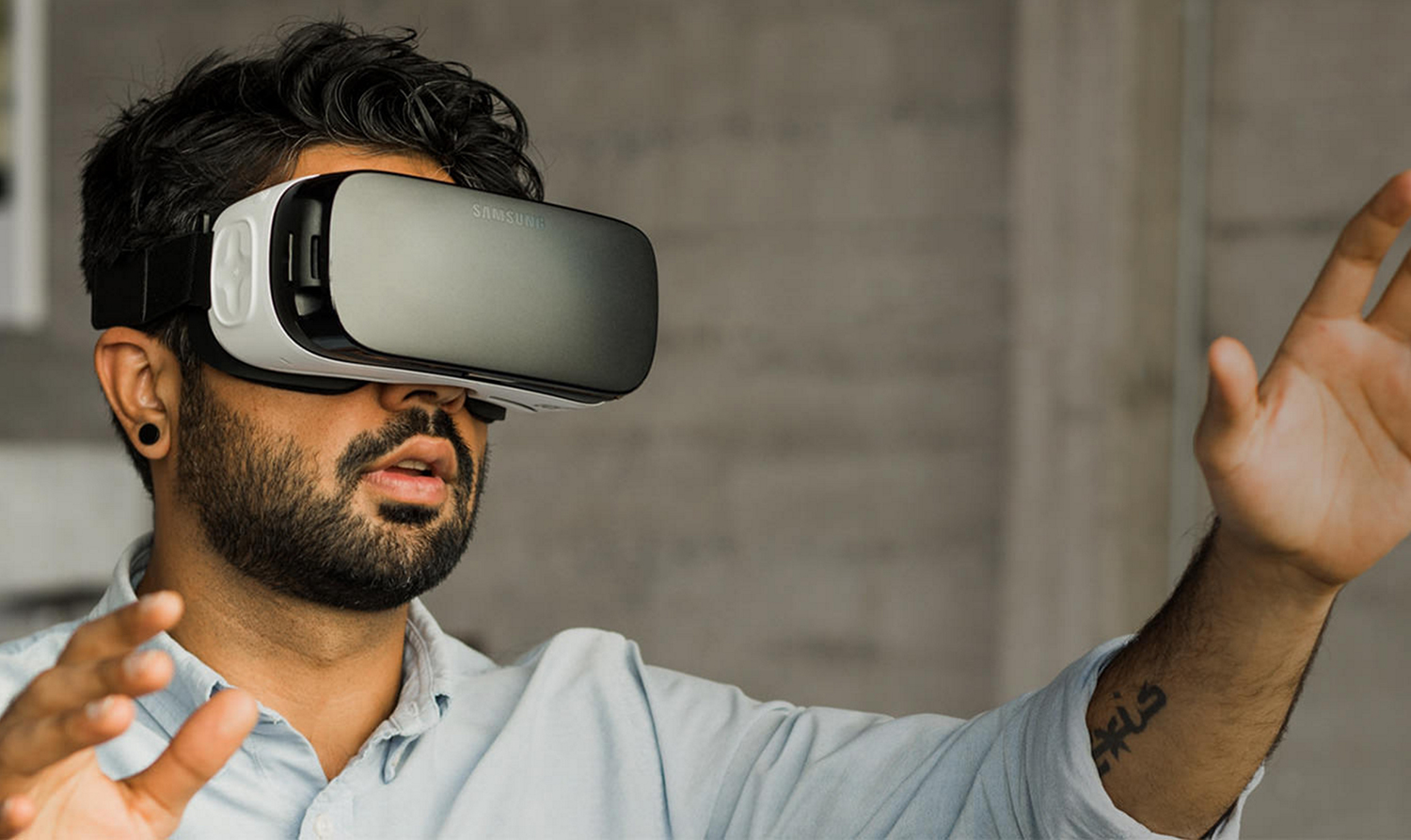
Q: What has been the response to Gear VR so far?
A: It's been super-positive both in terms of getting units out there but also software usage. There were a lot of people holding off on releasing their software until after the consumer launch. So we've seen the usage of Gear VR go way up. There's a lot more people using it on a daily basis then there was before.
There's a lot of stuff coming out next year that's been in development since late 2012, early 2013.
Q: Land's End on Gear VR was kind of an "aha" moment for me because you feel like you’re moving objects and solving puzzles with just your head. What's yours?
A: Land's End is one really good example in terms of gaming. But Gear VR is not just a gaming tool. In fact, some of the most used applications have nothing to do with gaming. Like the Netflix application and especially Oculus Video, where you're able to watch videos with other people in a social space. That's been getting a ton of use.
Get instant access to breaking news, the hottest reviews, great deals and helpful tips.
MORE: Samsung Gear VR: Everything You Need to Know
That's kind of interesting because it's like a multiplayer-type experience even though you're not playing anything. It brings that experience of being able to watch stuff with your friends in your living room to virtual reality.
I have friends that are all over the country, and after college we spread out to wherever our careers were. And with this we can actually feel like we're there watching the movie together and guessing what's going to happen -- and just bullshitting in general.
Five years from now even low-end laptops are likely going to be capable of driving good virtual reality experiences.
Q: Is there an audience for VR right now beyond early adopters?
A: Right now virtual reality is kind of limited to two groups. The first is with Gear VR, people who have phones that are good enough to run virtual reality software. And then on PC, people who have high-end graphics cards. That's mostly gamers at the moment. It's not like everybody has a machine that's capable of driving a VR experience.
It's going to be a hard sell to get someone to buy a headset and content and a brand-new high-end computer. But that equation is going to change as time goes on, because graphics cards are going to get way cheaper, computers are getting way faster and five years from now even low-end laptops are likely going to be capable of driving good virtual reality experiences.
Q: What's the best way to describe the difference between Gear VR on mobile and Oculus rift on the desktop? Better and best?
A: I wouldn't describe it as better and best. They're really just two different use cases. With Gear VR you can bring it anywhere, you're not tethered, you can travel with it, you can show it to your friends. Even if you already have a Rift, you're likely to want to own a Gear VR.
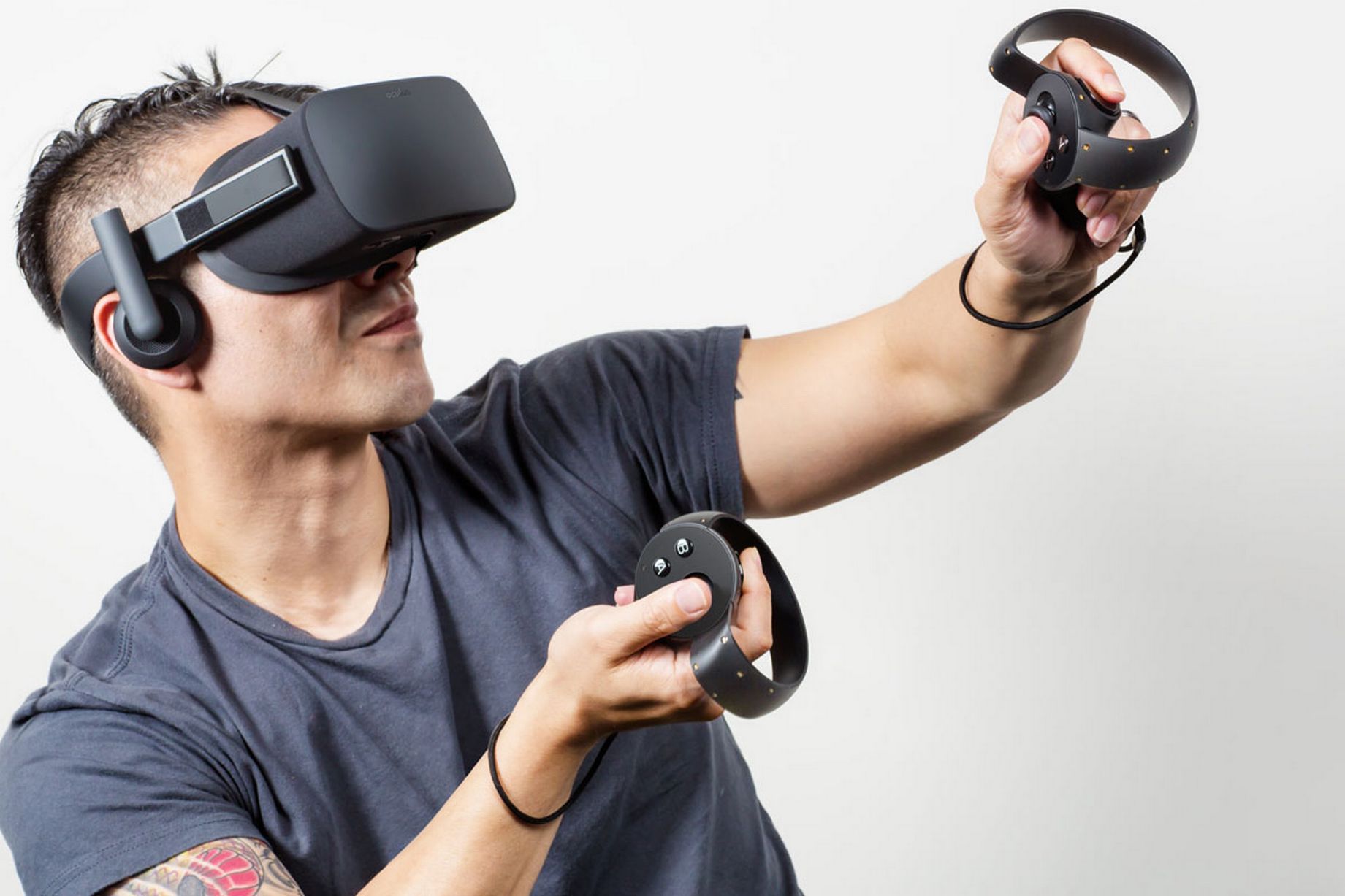
That said, mobile is not the limitless canvas that you have on a PC today, where basically anything the developer can come up with they can make. PCs have enough power where if you want to have 100 enemies on screen they can do that. If you want to have a huge open-world environment you can do that.
Eventually, we're going to capture and recreate pretty much any real-world event, and everyone is going to be interested in doing that.
The Gear VR is a lot like old console games where you had really strict hardware limitations, so you have to figure out how to make the right trade-offs with the limitations in mind. The frame rate is really still important on Gear VR, so you're going to have to prioritize that over graphical flash and polish. But there's still some awesome games.
Q; Have you been surprised by how quickly a VR cottage industry has emerged for creating content?
A: With the exception of Oculus Video or Oculus Medium, which is our multiplayer sculpting tool, we've been focusing most of our resources internally. It's mostly been on gaming because that's where we think we can get the greatest return on investment for us.
But there's a lot of people outside of Oculus that are focusing on lots of little niche markets that are going to revolutionize virtual reality. People who are using virtual reality for architectural walkthroughs, people who are using VR for medical training, military training, first responder training. People who are using virtual reality for education. You're going to see a lot of great non-gaming stuff coming outside of Oculus.
Q: What about user-generated VR content?
A: There's two sets of consumer content creation. There's the people who are kind of on that line between consumers and creators that's blurring. As tools like Unity have gotten a lot easier to use, people who don't really have a deep technical understanding of virtual reality or game engines are able to create stuff.
And then there's the much easier stuff, like creating 360-degree videos and 360 photos. I have the Ricoh Theta, and it's super-cool because it's about the size of a king-size candy bar and I can just go out and snap 360 shots. The current fidelity of 360 capture technology is more limited than we eventually want to have but that’s a reflection of the current state of the technology, not the ultimate outcome of it.
Eventually, we're going to capture and recreate pretty much any real-world event, and everyone is going to be interested in doing that. One interesting example is one of the guys in our Japan office actually captured his wedding using 360 cameras and was able to show it to family members who weren't there on VR. Some people were older and couldn't make the trip. And I watched it on Gear VR. That's the type of content that I think everyone is going to be interested in creating.
Q: How important are the Oculus Touch controllers in terms of making VR more immersive and seeing your hands inside the virtual world to manipulate objects?
A: The biggest change that Touch gives is expanding the number of the different types of games you can make in virtual reality. The thing to keep in mind is that Touch is not necessarily a good addition for every type of game. Otherwise, you wind up with a scenario like with the Kinect or Wii, where there's a bunch of games that have mechanics shoehorned in that don't make sense.
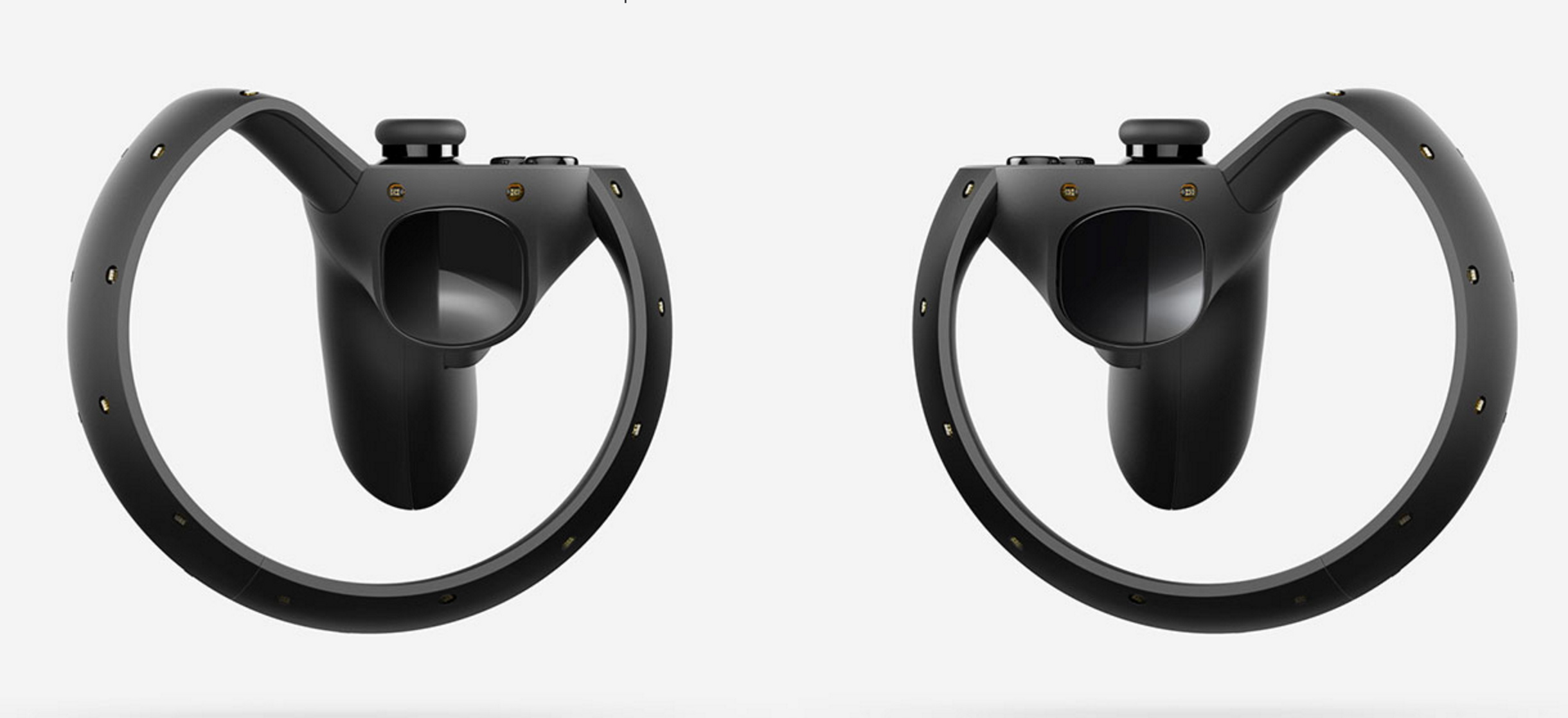
If you want to make a game where you interact with the environment in the same way that you interact with the real world, something like Bullet Train or Toy Box ─ our internal test bed ─ there's really no way to do that without Touch. You have to have that hardware or you're just not going to be able to do it with a gamepad.
Q: Do you see something like Oculus Touch coming to the mobile experience or do you feel like it will be a desktop-only thing for a while.
A: It will be a desktop-only thing at first but I personally think that mobile in an abstract sense (not necessarily your phone dropping into something) is the future of virtual reality. All of these headsets are going to have onboard render horsepower that's used for the majority of experiences.
That's not to say that you won't be able to tether to more powerful machines, but once the hardware gets good enough, most people are going to go for the convenience of having a single device that does it all instead of a big box in their living room. So eventually mobile is going to get all of this. It's really going to be a matter of time, cost and complexity.
Q: I'm assuming other phone makers have approached you other than Samsung. Can you say anything about whether mobile access is going to broaden beyond the Gear VR in 2016?
A: I can't comment on any exclusivity agreement existing or not. What I can say is that we've been working really closely with Samsung for a long time, and one of the reasons their phones are so suitable for VR is that they're the only people out there with high-quality OLED displays in their phones. OLED isn't just a nice-to-have for virtual reality. They're the only displays that are able to do low persistence on mobile. You get a continuous flow of motion. We use Samsung displays in the Rift as well for that reason.
It's been good to be able to work with Samsung and Qualcomm because we've been able to get low-level access to all of the system hardware. That lets us write a lot more directly to the hardware than, say, a traditional application that's going through all of the Android layers, which means we can treat it a lot more like a console than a phone. That's one of the reasons we're able to get such good graphical performance out of it.
It would be awesome if we could do that on every phone, but display issues aside, there's just so many different configurations out there, building something universal for every phone is pretty much impossible right now. But it might become more feasible in the future.
Q: VR headsets close you off to the world around you. What about the social ramifications of virtual reality?
A: Most digital communication technologies, whether it's text messaging, email or Twitter ─ all of these things are very limited forms of communication compared to actually being there with someone in person. That's why we have conventions, where people who normally use more limited forms of communication go and they're able to hang out in person.
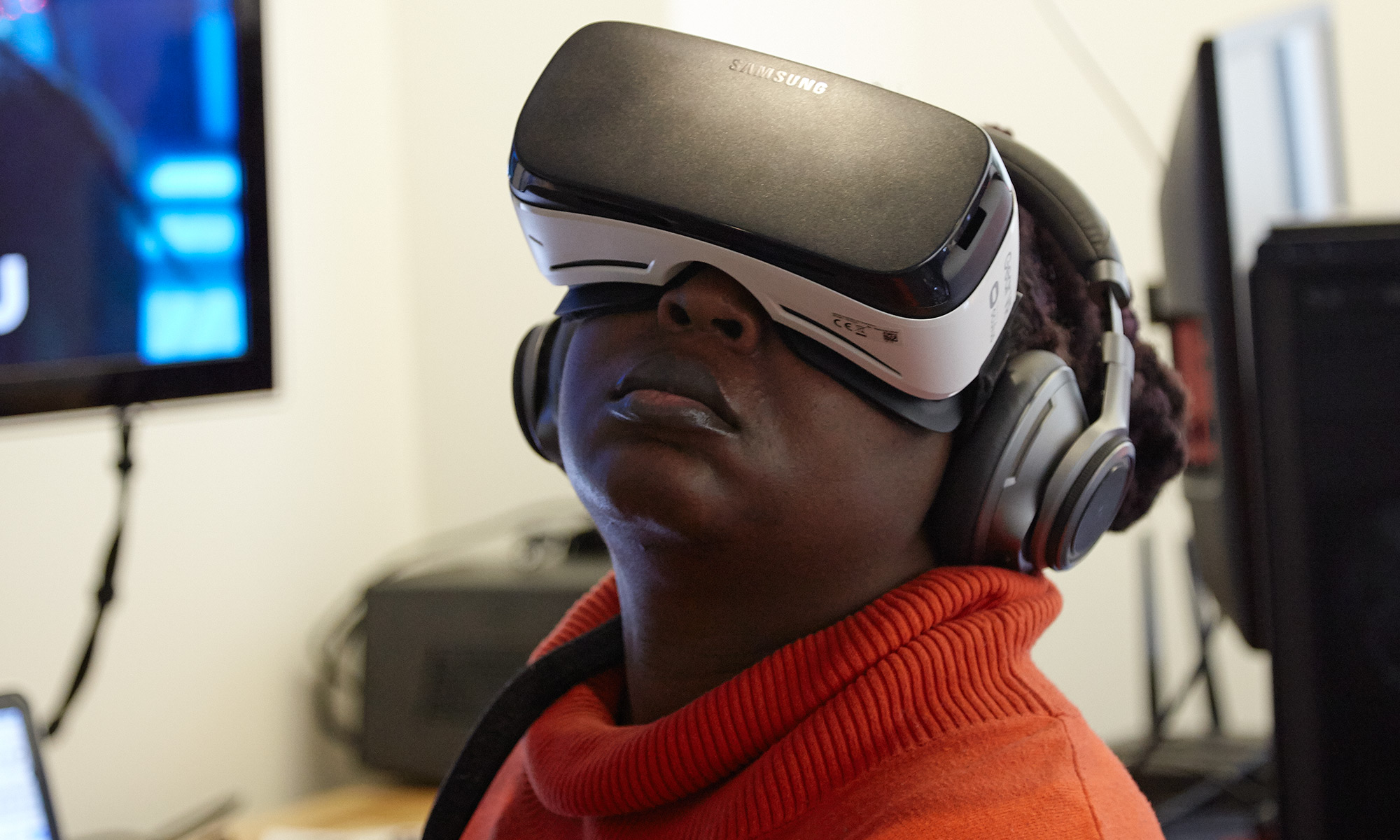
I think that virtual reality is the first technology in a long time that makes digital communication a lot more human. I'm not necessarily talking virtual reality as it exists today, where we have fairly limited avatars and voice chat. I'm talking about a few years down the line as virtual reality progresses to its natural conclusion. Eventually we're going to be able to — if not perfectly — do a really good job of simulating people actually being together in the same space. To me, that's going to connect people a lot more than isolate people. It's just going to connect them in a different way.
The eventual goal is something that's closer to a pair of sunglasses … and it will be able to blend into your daily life.
Q: OK, but what about the people around you not wearing a headset?
A: As far as people that are actually in the environment where you're wearing a headset, that's kind of a temporary problem. Right now when you're wearing a headset, it's pretty clear that you are isolating yourself and that you're going to be cut off from people who are actually there in the real world space with you while you use it. But in the long run both virtual reality and augmented reality are going to converge on hardware that's going to be a lot less obtrusive than what we have today.
The eventual goal is something that's closer to a pair of sunglasses, not a big set of bulky goggles that you wear. I think as you get closer to that it's going to be an experience that doesn't necessarily get in the way, and it will be able to blend into your daily life.
Q: So do you see virtual and augmented reality converging?
A: In the short-to-medium term they're definitely going to be discrete experiences, because of the hardware that currently exists. Augmented reality has different optical requirements. Generally, you want to make optically transparent displays right now, which don't lend themselves to the wide field of view of VR. But there are lots of technologies on the horizon that are going to help AR and VR converge into the same set of hardware.
There's actually not all that much difference between AR and VR as people might think, and there's going to be a lot of experiences that are halfway in between. For example, it's easy to imagine bringing people from a real space into a fully virtual environment or bring real things like your desk or your coffee into a virtual environment. These things are going to wind up being the same set of hardware, but in the near-to-medium term it's going to be very different hardware with different sets of users.
I don't think we've seen the killer app for AR in the same way that we've seen the inkling of a killer app for VR.
Q: Do you see AR taking off with consumers before it blends with VR?
A: I think augmented reality now is on a path to be used for industrial and enterprise applications before consumer applications. Partly because there's such obvious applications ─ they're like telling you how to put stuff together, telling you where something goes, instructing you in a complex task. No one has come up with the killer app for augmented reality consumer devices yet.
There's all kinds of cool novelty things, like looking at someone and seeing their name before you meet them or reminding you of someone's name or where they work — those types of applications are going to rely on other types of technology, and I don't think those are good enough that someone would want to wear glasses all day.
I don't think we've seen the killer app for AR in the same way that we've seen the inkling of a killer app for VR. I'm not saying that virtual reality's killer app exists yet but people can imagine how to use it. They're like "Oh, I get this. I've seen sci-fi movies, I've read sci-fi books. I get how this could be used for really cool things. For telling stories, for playing, for working, for communicating." I don't think AR has that advantage on its side just yet.
Mainstream consumer virtual reality is a lot closer than mainstream consumer augmented reality, but both of them are going to be huge.
Mark Spoonauer is the global editor in chief of Tom's Guide and has covered technology for over 20 years. In addition to overseeing the direction of Tom's Guide, Mark specializes in covering all things mobile, having reviewed dozens of smartphones and other gadgets. He has spoken at key industry events and appears regularly on TV to discuss the latest trends, including Cheddar, Fox Business and other outlets. Mark was previously editor in chief of Laptop Mag, and his work has appeared in Wired, Popular Science and Inc. Follow him on Twitter at @mspoonauer.

